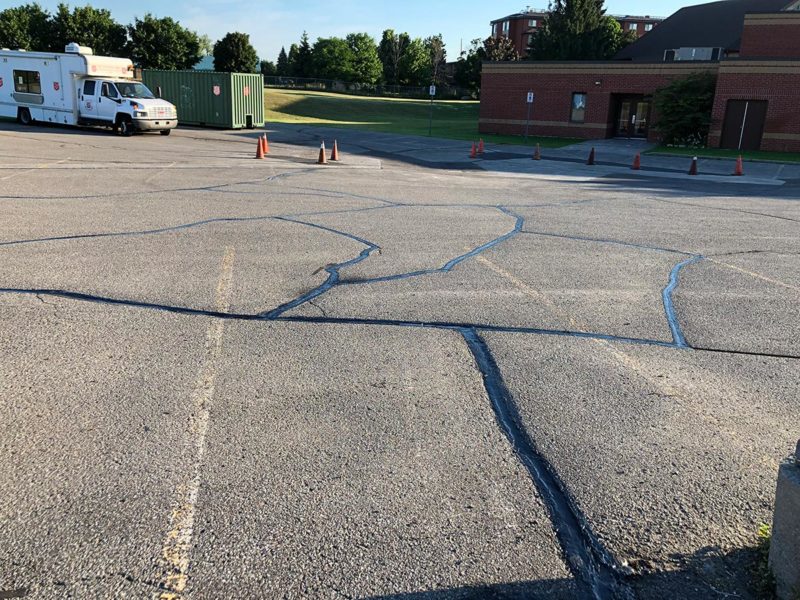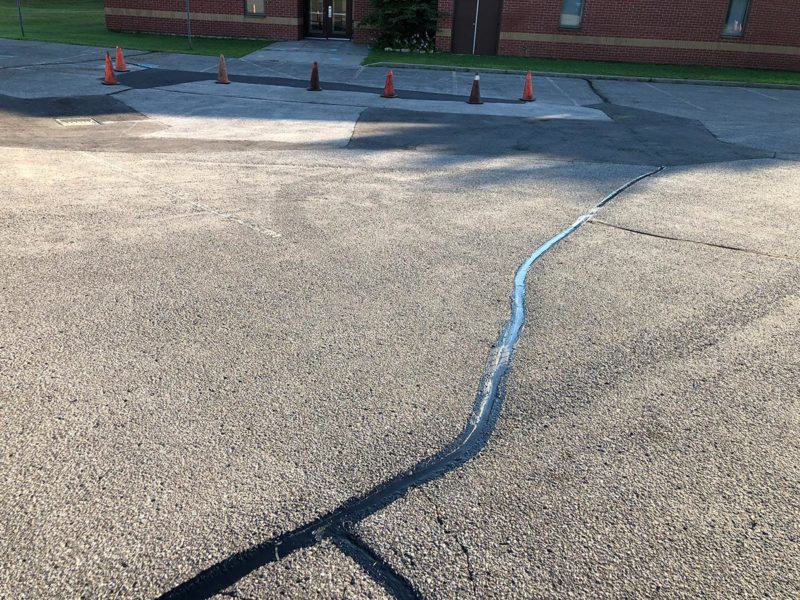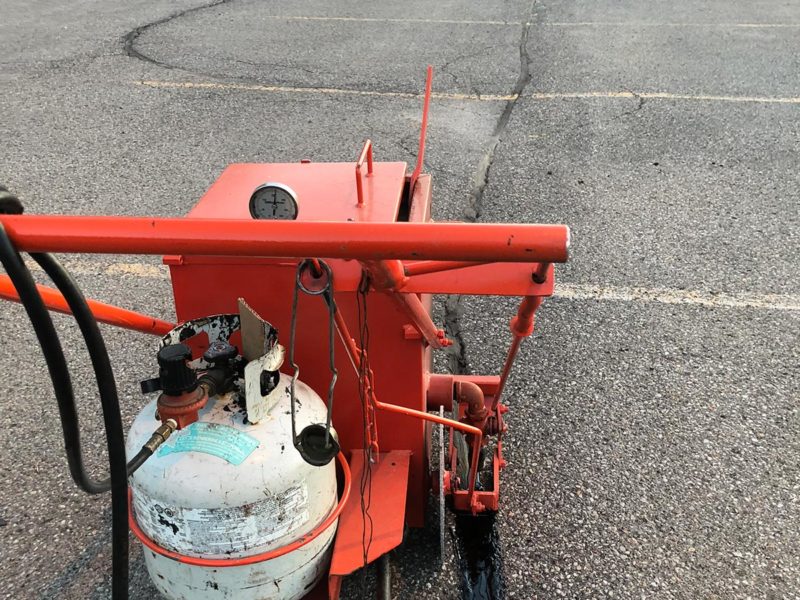Crack Sealing
One of the biggest mistakes people make is waiting too long to begin crack repair maintenance. By crack sealing your pavement when cracks first appear you keep the water out. As pavement ages and cracks begin to develop, there are a variety of reasons for this – among the most common are thermal stresses (freeze-thaw action), seasonal temperature changes, vehicle load, poor drainage and other underlying pavement conditions. Asphalt expands and contracts and as the asphalt binder ages, it becomes more brittle which also leads to cracking. Moisture entering these cracks for long periods of time will eventually lead to premature failure of the pavement surface. Asphalt crack sealing is a routine pavement maintenance service to prevent water from entering into the aggregate base and subgrade material below the pavement.
This process should be performed on pavements that are in overall good condition. This is defined as having a structurally sound base and exhibiting longitudinal, transverse, or block cracking. ‘Alligator’ cracks are not suitable to be filled (see asphalt repair)
Preparation of the pavement cracks is of utmost importance. We route cracks using a high powered machine, equipped with carbide cutting wheels. It involves cutting along the crack to provide a uniform rectangular reservoir in which the sealant is to be placed. Crack cleaning is an essential next step in crack sealing since most failures occur as a result of loss of adhesion. Cracks are thoroughly blown free of debris, and any present moisture is dried with a 2800 degree F heat lance. Hot applied rubberized crack sealant is then machine applied to form a water tight seal and a solid bond!
Crack sealing is the most cost-effective method of pavement repair that will add years to its life. Attention should be given every 1-3 years depending upon severity and volume of cracks. Call us today to schedule a no cost visit and evaluation of your parking lot or driveway at 289-SEALCOAT




